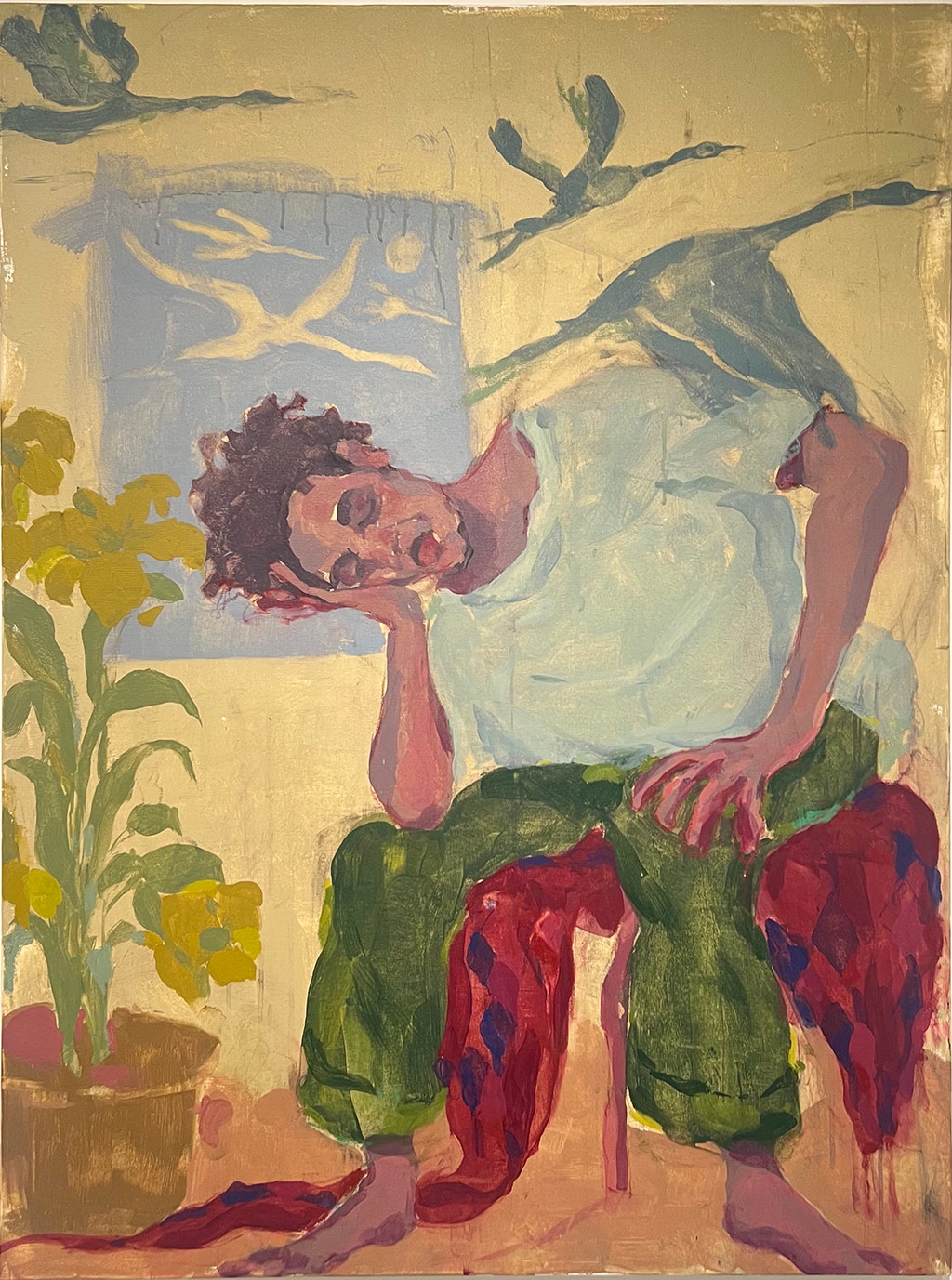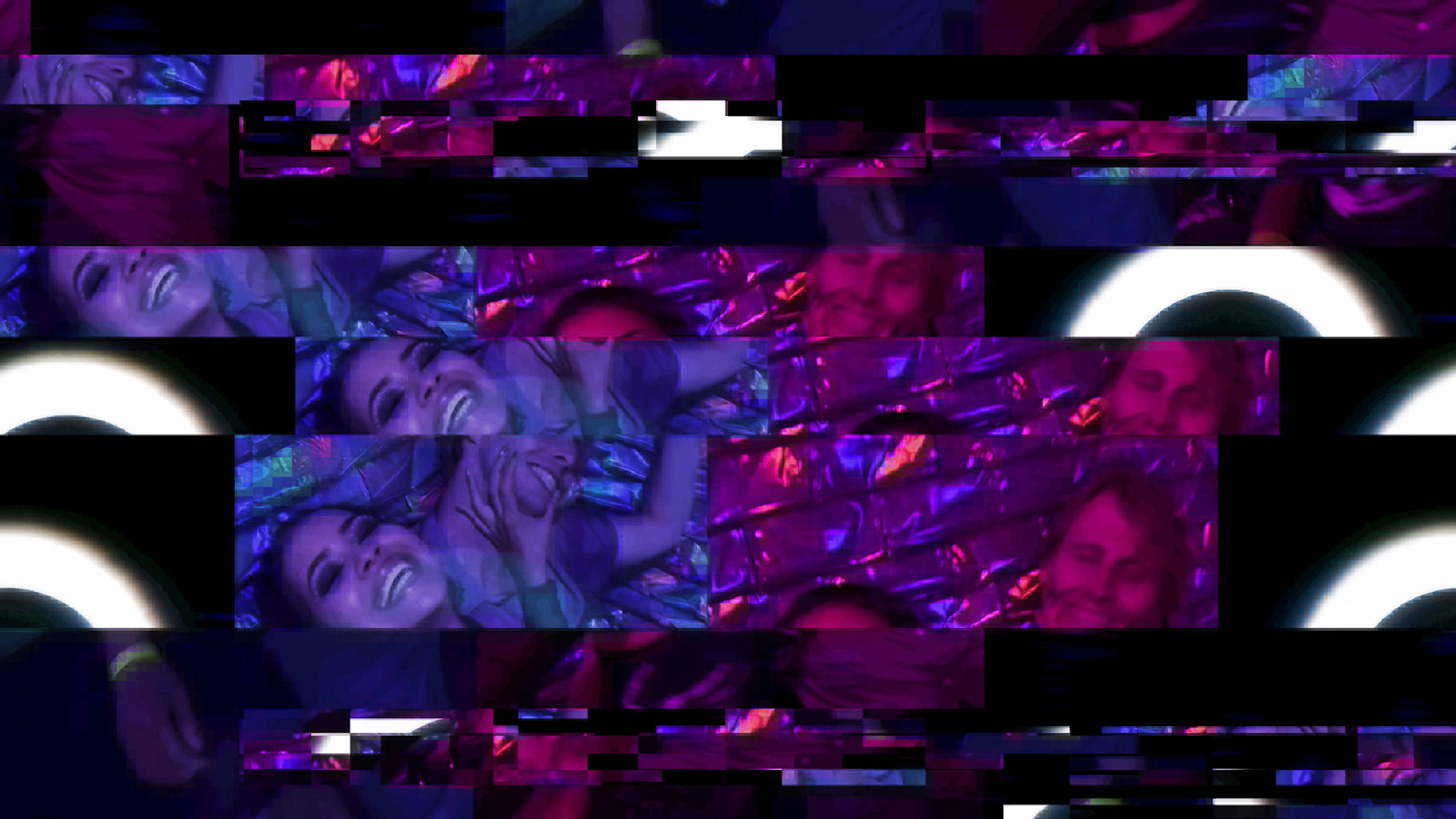Although not necessarily representative of the sonic scope of Inji, “Occasion” exudes the perfect amount of mystery, so that musical styles need not remain consistent throughout its duration. Instead, LA Priest’s mojo is the record’s guiding force — and let it be known that he, Sam Dust, does indeed have quite a bit of mojo — to pull listeners through whatever sonic spaces he might desire.

Indeed, on the track to follow, “Lady’s in Trouble with the Law”, LA Priest goes public, casting open the bedroom doors of “Occasion” to spill onto the sunny streets in a bold, life-affirming declaration for oneself.
“Now that I’m low, I feel high/ And I’ve got a heart of living, feel light,” he sings, his voice bouncing between percussive grooves and textural backing vocals with ease. “Even when I know that it’s wrong, feels high/ And even when I know that I’m low, feels right.”
Almost every track on Inji is filled head-to-toe with satisfaction — most of all in Dust’s expertise in using guitar tones and solos, but also due to the album’s bubbling percussion, his slight vocal rasp, perfect slices of synthesizer genius, and a low-end which dances with understated but ever-vital grooves. There is much to savor, and the balance is perfect — snippets here, snippets there, and everywhere, all executed with the precision and perfection of someone who has quite clearly been around the block and is probably the type of dude about which others whisper, “That guy? He’s a musical genius.” And those whispers might not even take into account the fact that Inji‘s cohesiveness is a marvel; the album was written over five years, while Dust was traveling the world doing scientific research, producing secret musical projects, and working on a number of new inventions. His genius, it seems, extends into thoughtspaces much more surprising than music.

A diverse number of instrumental tracks serve as tunnels pulling listeners into each next musical phase of Inji — and so it is that when LA Priest suddenly goes full dancefloor ready on “Party Zute / Learning To Love”, it somehow works. This is easily the most in-your-face track on the record, and surely the most goofy, with its almost kazoo-like horn sounds (is this a party zute…?), yet it somehow still works — particularly when his vocal hook weasles in at around the halfway mark and repeats, “So we just slide down into love, over again”. At that point, the track seems to transition out of its “Party Zute” first half and into its equally dancey but quite more tonally serious second half, “Learning To Love”. It then ends in some sort of vocal loop outro, which fades out only to pick up again in the next track, “Lorry Park”, which recalls days of basement-dwelling performers armed with Casio keyboards and loop stations.
Yes, “Party Zute / Learning To Love”, is a compound track that is eight-and-a-half-minutes long and feels as such, its structure a microcosm of the larger album. Inji flies through phases, using finesse to touch upon many types of electronic music, with an equal balance of pop sensibility and meandering experimentation. Time and time again, one is reminded that Dust can probably lay his finger upon anything and make it glitter. Inji might be Dust’s first solo record under this moniker, but it feels like a fully-contemplated and fully-fleshed-out creation, with vision, passion, and consistency, even through all of its inconsistencies. While its primary mode is that of sultry late night adventuring — whether that be in the house beats of “Night Train” or the minimal synth compositions of “A Good Sign” — it has a couple daytime shimmer tracks too, such as the album closer, “Mountain”. Yet, in some ways, it’s not even about Inji‘s sonic scope; it’s about its slide-out-of-the-seat-of-your-pants appeal, which beckons to both ladies and men alike.
It is legitimately difficult to pick a favorite track on Inji. Bow at the feet of LA Priest and soak in his incredible godamn vibe.
Ω






